Growing up Overseas
Growing up Overseas
This week’s column I give over to my oldest daughter Amanda who is 17 years old and quite the young lady. I am especially proud of her recognition of the many blessings we have in the US and her appreciation of the abundance we enjoy. As we enjoy US Thanksgiving, I hope that all of us recognize and appreciate our bounty and count ourselves as some of the extremely fortunate human beings on the planet. Take it away, Amanda.
Hello, my name is Amanda Cobb. I’m thrilled to have the opportunity to write about my experiences about growing up in a foreign country. I was two years old when my family moved from a small town in West Virginia to Managua, Nicaragua. It was my dad’s work that brought us to Nicaragua, and at two years old, I didn’t really have much say in the matter. It was definitely a transition for the whole family, but soon, we would call it home.

Shepherdstown, WV
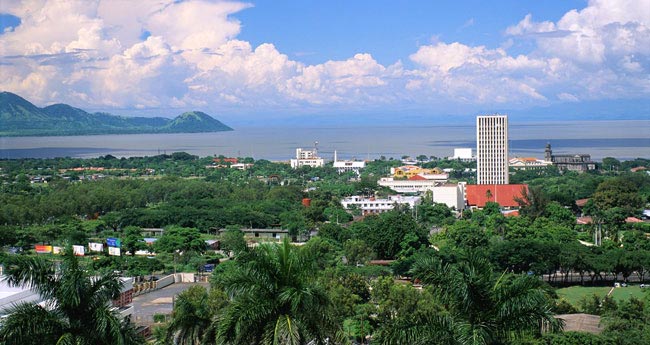
Managua, Nicaragua
Growing up in Latin America exposed me to so many unique experiences that I would never have had growing up in the U.S. Looking back, my childhood is filled with happy memories of my time Nicaragua. If I hadn’t lived there, I wouldn’t have experienced so many of the things that shape me into who I am today. I would not change it for the world, and I hope that everyone gets the opportunity to experience life overseas at some point in their lives as well.
There are lots of reasons why moving overseas with children is a good idea. In fact, it is becoming more and more common. A study conducted by Kathleen Finn Jordan at the University of Michigan and published in the NY Times, on a group of ‘Third Culture Kids’ studies how living overseas during childhood affected their adult lives. The study found that children and adolescents who grew up in a foreign country were more successful than their peers at home, earning higher degrees in education and higher positions in the professional world. Not surprisingly, 63% also stated that living abroad influenced them to study or go into an international related field. Many factors, such as speaking multiple languages and understanding many cultures, greatly helps these third culture kids advance through life. The opportunity to see different cultures and places from a young age is an amazing learning experience that is incredibly valuable.
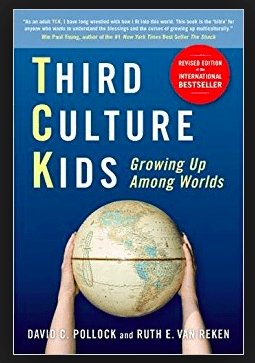
Excellent Book for Expat Families
I do not have many memories of the move to Nicaragua, or my life before moving there. Just after my second birthday, my mom, dad, and I packed up our house in the U.S and moved to Nicaragua along with our dog Bailey. Soon after we arrived in Nicaragua I got really sick. We went to the doctor and he told my mom that my immune system was in shock from the move.
This was only the first of many challenges of moving to a foreign country. The language was another challenge for my parents. At this point in my life, I was already speaking English and my mom and I had started learning Spanish in preparation for the move. I quickly surpassed both my parents with my Spanish speaking abilities and became their personal translators at age two. More than fourteen years later, I am still my father’s translator.
Experience the Insider community that takes your international lifestyle to the next level. Download your FREE guide
"18 Steps to Implementing Your Plan B" instantly!
(Father’s note: For a funny video of Amanda getting one over on her dad, click on the picture below. Amanda was on a panel at the Live and Invest Overseas Conference in Nashville a few years back with a couple hundred people in the audience. Her comment in the video below comment was retribution for me “making her” sit on a panel of expats and tell her story. The audience got a good laugh at it, and so did I. I also received a new name tag at the conference and have been called “Señor Si” by several since then. Ahhhh Kids. They certainly keep us humble for sure.)
Final question of the Panel:
“What is the one thing you should do when you move overseas?”
Click Here to See Amanda Make Fun of Her Dad

Nashville Live and Invest Overseas

Señor Si and Amanda
As we began to meet people and explore the city, we learned more and more about what it was like to live there. There were hundreds of new, exotic, fruits and vegetables to try. We were expected to hire a maid, gardener, and chauffeur. Cultural dos and don’ts had to be learned. But to be honest, as a two-year-old, these things didn’t matter to me. I loved the hot weather and delicious ripe mangoes that fell off the tree in our backyard. I made some friends and soon started off in preschool.
Many of the friends I made spoke English, but we would usually speak in both English and Spanish, because that was what was easiest for us. My mom put me in some after school activities like swimming, art class, horseback riding and ballet, so in that aspect, I was a typical preschooler. Dance, especially, is a huge part of Nicaraguan culture, and from the time I started preschool I was involved in a lot of dance performances and recitals. I had no idea what an impact dance would have on my future, but I am sure that this cultural aspect shaped my dream of becoming a professional dancer.
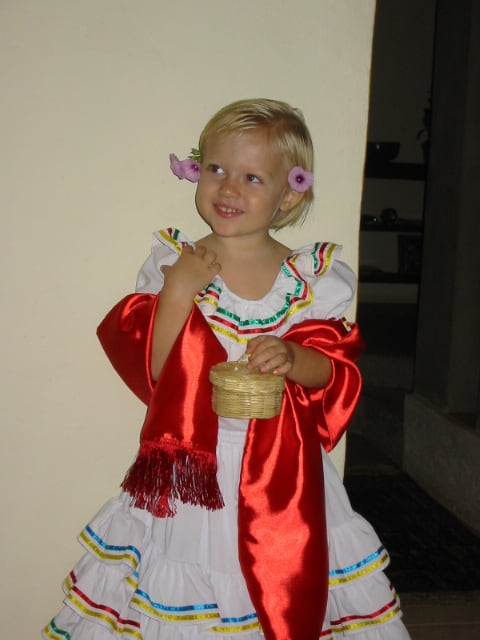
Amanda in Traditional Dance 2003

Amanda and Friends Backstage Before Kiddie Stop Show 2005

Amanda Performing in a Professional Opera, Le Villi, Managua 2015
Growing up in Nicaragua, I was fully immersed in the country’s culture from a very young age. I was exposed to the culture at school, at dance class, with my friends, and even at home. My parents also taught me about American culture and how to read and write in English. In this way, I grew up as a multicultural child. I understood the workings of the Nicaraguan culture as well as the cultural values that my parents taught me at home. There is a lot of conflicting information when it comes to these two cultures, but I understood very early on that neither is right or wrong. Values such as time and hard work, for example, which are prioritized in the U.S, are not as important in Nicaraguan culture. My parents often struggled with these conflicting values, especially at work. My ability to understand both cultures allowed me to explain to them why these conflicts appeared and help them resolve them.
Living in Nicaragua is a lot like living in a small town. Everyone knows one another and are friendly and helpful towards each other. Although you cannot expect to go anywhere without seeing someone you know, it also gives you a sense of community. The people also love children, which is wonderful especially growing up there. Unlike in the U.S, where people expect kids to be loud and messy, Nicaraguans dote on children and don’t make them feel unwanted in restaurants and other public places. In many ways, this makes young children feel very special and loved.
Time, like in most Latin American countries, is very unimportant. You are expected to arrive at any party at least an hour late, and very formal attire is always required. After a few years of arriving at every party hours early and severely underdressed, I finally learned that being late is far better than being early, especially if you are arriving before the host. These traits are present in any country’s culture and learning them is key to truly living in any country. There are always new things to be learned, even after living somewhere for years. By accepting, appreciating, and respecting the culture, you will truly gain a wonderful experience from living anywhere.
Having household help is a huge part of Nicaraguan society. Not only is it extremely affordable, but it also is a huge source of income for many Nicaraguan families. My family only had one part-time maid and a gardener, which by Nicaraguan standards is very little help. Many other households have multiple maids, nannies, cooks, and gardeners, who all work full time. Having someone to help around the house was a big change for my family, and had a huge impact on our lives. Because my mom did not have to clean the house, she could spend her time taking care of my sister and me which she made her priority. This time that we spent together is invaluable to me. Having Nicaraguans in our house also taught us many cultural practices and improved our Spanish. It was a huge luxury to have household help, yet in many ways, it taught me humility and to be grateful for what I had because I saw people who were less fortunate than me every day.
Poverty in Nicaragua is something that you see on a daily basis. Cardboard huts and hungry children line the streets. Every day, children as young as four years old beg at the stoplights. The poor live mixed in with the wealthy, and it is not uncommon to see a mansion neighboring a small community of dirt-floored shacks. Seeing true poverty made me realize every day how fortunate I was for what I had. It humbled me to see children, younger than me, living on the streets without a home or food to eat. I wanted to help these people, give them some of what I had, but many times this help can do more harm than good.
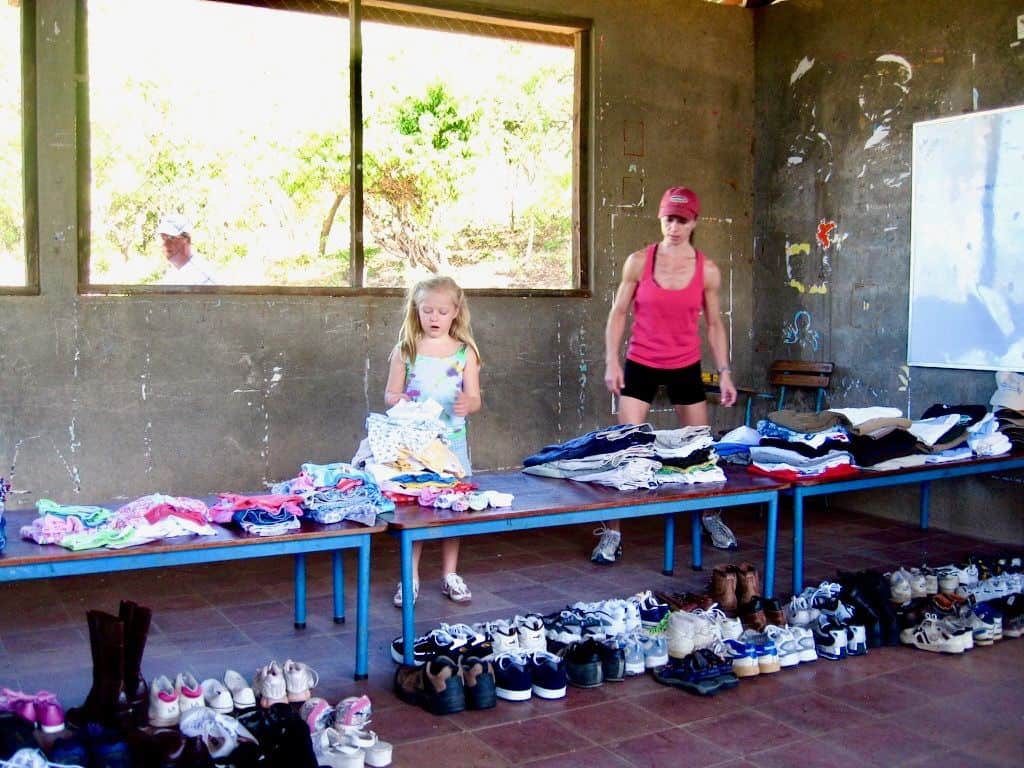
Amanda organizing shoes for distribution Villa el Carmen Nicaragua 2007
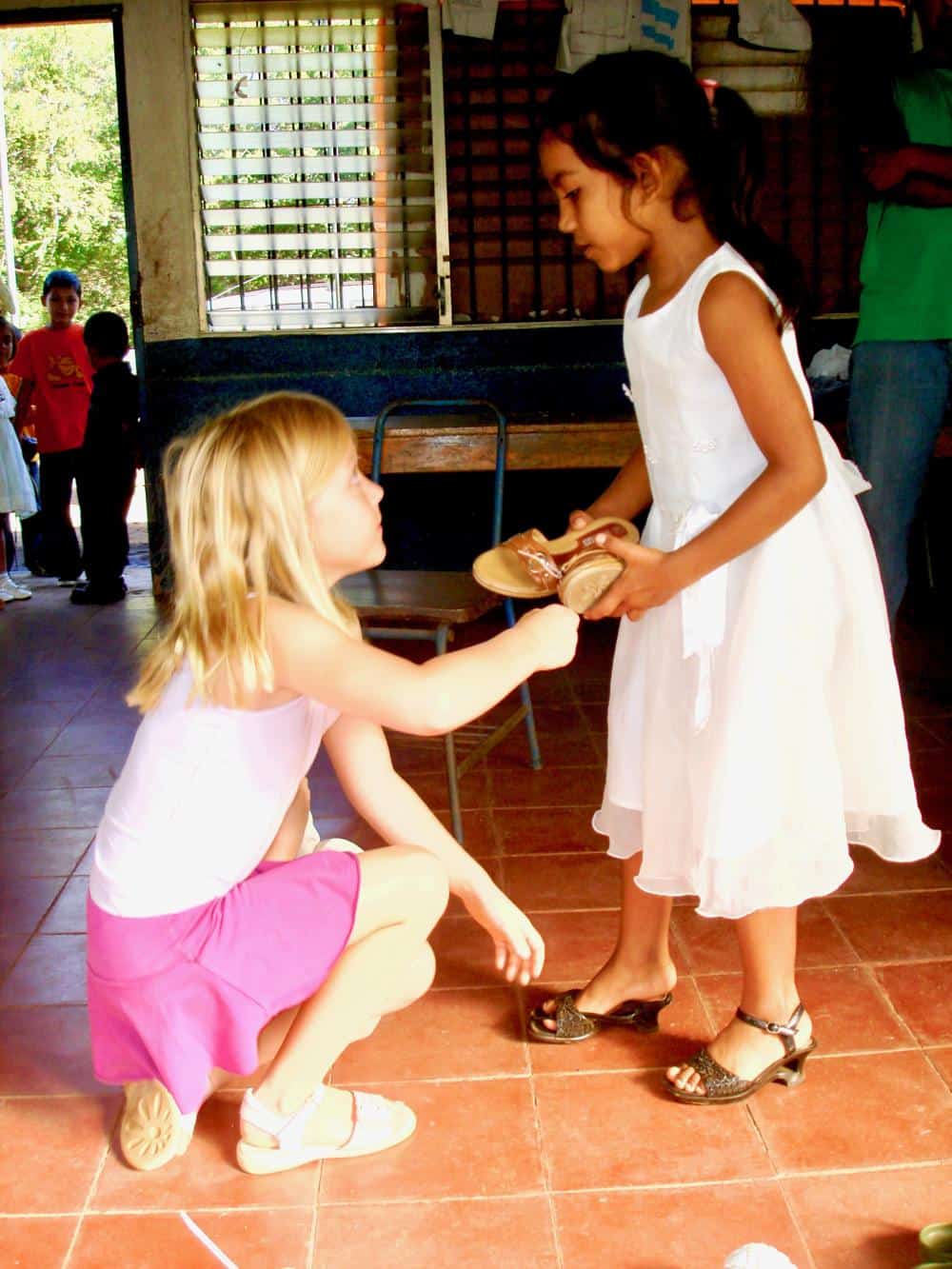
2nd Shoe distribution 2007

Shoe Distribution 2008
From a young age, I understood that giving money was not the answer. My family and I hosted many charity events for rural communities and schools throughout Nicaragua. We would go out to the local communities and donate shoes and pencils so the children could go to school. I spent numerous weekends handing out books and painting school buildings, encouraging the children to get an education. Driving around the city, we would hand out food to the children on the street corners. These experiences showed me how even relatively small acts could truly help those in need.
The upbringing that I received, not only allowed me to gain perspective of different cultures but also allowed me freedom. Many of the rules that exist in the U.S aren’t practiced in Nicaragua. Children don’t have to ride in a car seat, and most people don’t use sunscreen. Children are allowed to climb things and explore. Without as many rules in place, there are so many opportunities to see and do incredible things.
For my birthday one year, my friends and I went to the Masaya volcano where you can see lava inside the crater. To do this, four people at a time must hold onto a metal pole in the ground and lean over the chasm. There is no railing or protection of any sort, and if you were to let go of the pole you would most likely fall into the volcano. Another experience is seeing sea turtles hatch on the beach. The few people that are there can hold the newborn turtles before allowing them to reach the ocean. These experiences are only possible because of the lack of rules and regulation in Nicaragua. Having the freedom to do these incredible things also taught me to trust myself and feel confident in my independence.
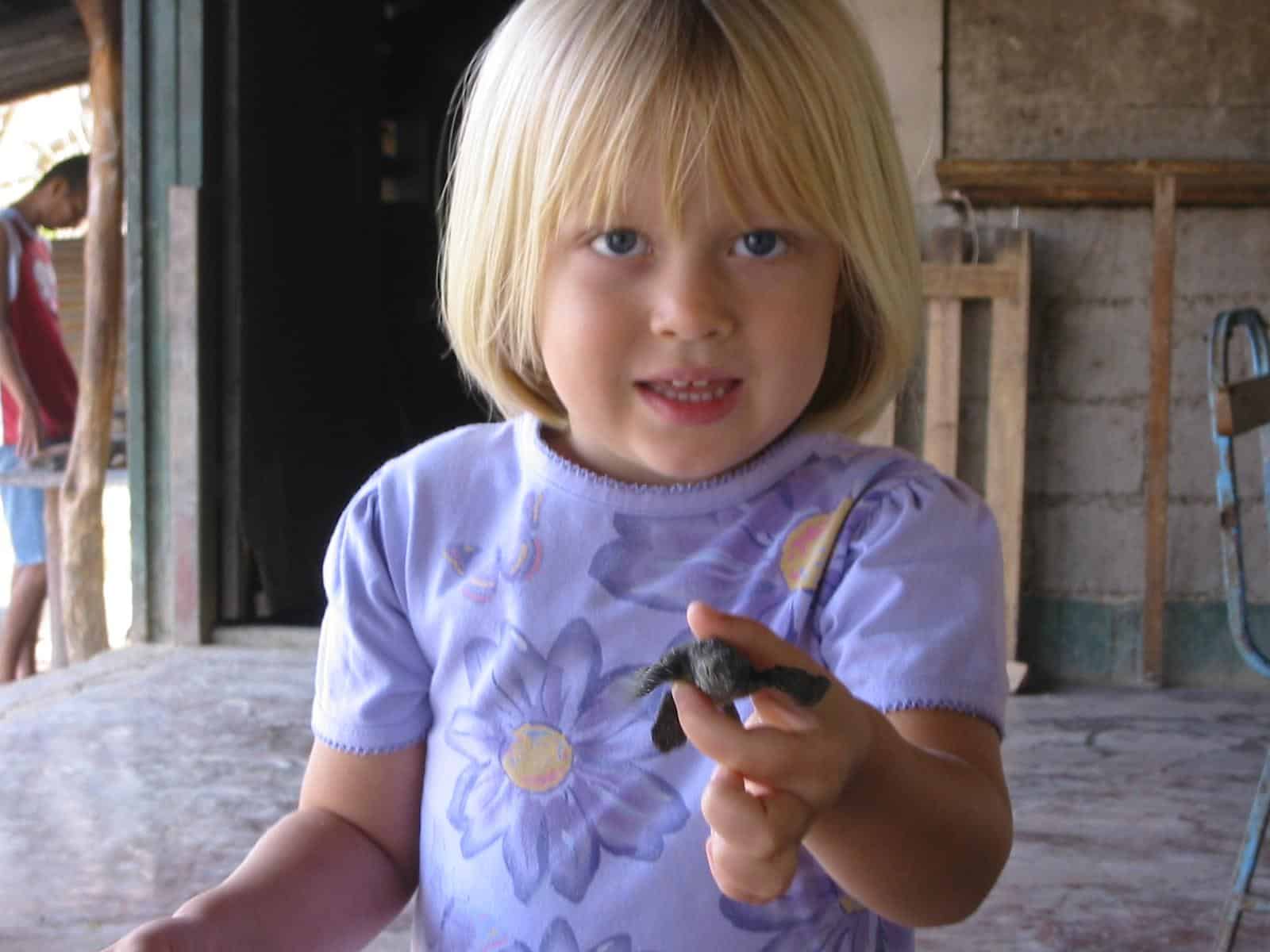
Baby Sea Turtle Rescue

Cliff Jumping Somoto Canyon

Lava Up Close in Volcan Masaya Crater
There are so many reasons why I believe growing up overseas was hugely beneficial to me. It taught me to live with less when things weren’t available. I had access to fresh, healthy produce and was able to spend lots of time in nature. I am so grateful for the experience I had growing up in Nicaragua and one day would like to give the same gift to my children. I learned so much about the world, and different people and cultures. I saw true poverty first hand and explored different ways to make a difference. I learned to live more simply and saw how fortunate I am for what I have.
All of these things, I might have never seen or learned about if I hadn’t grown up overseas. Now that I am living in the U.S, I see how lucky I was to be given such a life-changing opportunity. I encourage anyone who is even remotely interested in living overseas to try it, it is transformative, and if you have children, bring them along too because you never know how it might impact their lives.
_________________
Amanda, thank you for the great story and insights into growing up in Nicaragua as a third culture kid. You are right that giving children the gift of growing up overseas is powerful and transformative. As the age of the digital nomad continues to expand, hopefully more and more folks with young families, who are not tied to a specific location, can move overseas and let their children experience what you enjoyed so very much.

Amanda on the fire escape of her apartment in NYC
Now you live in New York City, pursuing a professional dance career. It’s a world away from Managua, for sure, but you have adapted well. Growing up overseas, Nicaragua specifically, gave you a unique perspective on life and the incredible abundance that you enjoy. You know how fortunate you are. Being able to recognize and appreciate the many blessings in your life is powerful and profound. You make a dad proud, Kiddo. Keep up the good work.
Here is probably the most extensive ebook on Everything You Ever Wanted To Know About Eliminating Your Taxes, Protecting Your Assets And Regaining Privacy Over Your Life And Investments. It is called The Ultimate Guide To Going Offshore.
Like Our Articles?
Then make sure to check out our Bookstore... we have titles packed full of premium offshore intel. Instant Download - Print off for your private library before the government demands we take these down!








